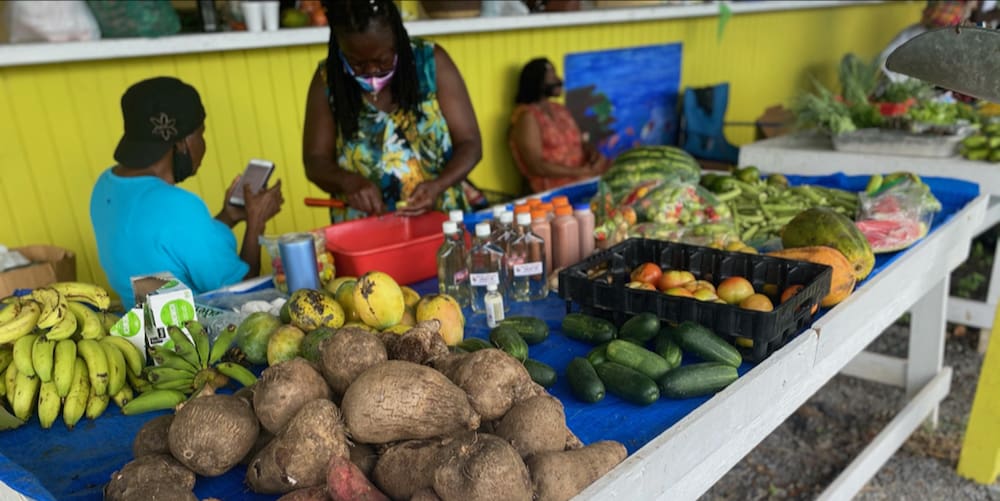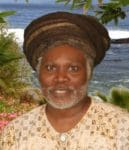
This is an open letter to the legislators of the U.S. Virgin Islands. I wrote an article to our local newspaper last year about an existing law to protect prime agricultural farmland in the Virgin Islands. In the Virgin Islands Code, Title 7 – Agriculture Chapter 1 – Development of Sustainable Agriculture Subchapter 1, Sustainable Agriculture Act 6836 was passed into law several years ago to protect prime agricultural farmland in the Virgin Islands.

Section (b) of Act 6836 states, “The purpose of this chapter is to promote and protect the agricultural industry of the Virgin Islands, to include the protection of prime agricultural farmland necessary to promote and protect the public health, safety, and welfare of the people of the Virgin Islands.” By several sources, I was informed that there are discussions among some legislators who are thinking about exchanging prime government agricultural farmlands with other lands to allow a development to move forward. Act 6836 forbids the use of prime government agricultural lands for non-agricultural uses.
This proposed development will take place between the V.I. Department of Agriculture food building and the St. Croix Educational Complex where farmers and customers park their vehicles to attend the annual Agrifest, and the Saturday and Wednesday farmers’ markets north of the University of the Virgin Islands campus. In fact, I got a call from a senator asking if I knew where this land is to be exchanged with prime farmland.
Prime farmland is based on the combination of the physical and chemical characteristics of soils producing food for human consumption. Soil is a complex science. Thus, soil is a living organism that breathes and gives life to other organisms, including humans. Soil is science, not dirt. When I was a freshman in college, I took a soil science class, which was required for my agricultural degree. I will never forget when the professor said to the class: “He doesn’t teach dirt in this course, but soils. Dirt is something that you sweep from under your bed.” That statement was profound and has stuck with me to this day.
However, what our legislators don’t understand is that prime agricultural lands differ from other agricultural land in that it generally consists of highly productive soil. You can’t exchange prime government agricultural farmland for other land because you want to accomplish a political goal.
Prime farmland is defined by the U.S. Department of Agriculture as, “land best suited to food, feed, forage, fiber, and oilseed crops. Prime farmland produces the highest yields with minimal inputs of energy and economic resources, and farming it results in the least damage to the environment.” There are many factors when designating an area as prime agricultural land. Some of these factors are soil types, water and nutrient availabilities.
The central plain of St. Croix has the most productive soils in the Virgin Islands. At the same time, it is the most vulnerable for urbanization of the agricultural areas which would radically alter the central plain landscape and destroy a major share of its natural beauty. We have already lost more than half of the central plain of St. Croix’s fertile lands, which are gone forever into non-agricultural uses. Therefore, the preservation of prime agricultural soil can be the difference between a prosperous society and poverty.
The physical properties of soils — the structure, texture, density, consistency, porosity, temperature, and color — are dominant factors affecting the use of soil. These properties determine water into or through the soils, and the availability of oxygen in soils for plant growth. The central plain of St. Croix has an underground reservoir due to its unique soil development that makes water more available to plant development. The Kingshill aquifer is the most productive and extensively developed aquifer in the Virgin Islands that covers some 25 square miles of the central plain of St. Croix.
Nonetheless, there is no need for me to explain what humus, aggregate, organic matter is etc., for all relative to the composition of the soil profile. This is one reason that the central plain fertile soils of St. Croix were designated as prime farmland by local scientists and the U.S. Department of Agriculture. As far back as 1965 the report entitled “The Reconstruction of the Agricultural Economy of St. Croix” noted how precious soils are to sustain the future development of the agriculture industry of the Virgin Islands.
“St. Croix possesses high quality land, suited to a wide variety of crops. At the very least, this land should be able to provide for most of the food needs of the islands themselves; if farming methods are brought to a stage comparable to those employed abroad, transport costs alone should favor the domestic producer, since his soils are perfectly adequate,” noted the summary report of 1965 on the development and reconstruction of agriculture on St. Croix.
As we get our nutrients from what we eat, so do plants in their development. Plants absorb nutrients from the soil, mostly what soil scientists call ions. This means there is an electric charge and how plants absorb nutrients from the soil. There are some 16 essential elements taken up by plant roots, primarily in the ionic forms, to sustain their growth and development. These elements are carbon, hydrogen, oxygen, phosphorus, potassium, nitrogen, sulfur, calcium, iron, magnesium, boron, manganese, copper, zinc, molybdenum, and chlorine.
Thus, nutrients are one of the key components in highly productive soils. My beloved legislators, soil is not so simple as you thought it might be in exchanging one parcel of land for another. Converting prime farmland to a non-farm use results in long-term negative consequences. Unfortunately, development often causes the preferential conversion of highly productive land. It is for this purpose laws were enacted, to safeguard the welfare of the people of the Virgin Islands to food security.
Legislators, be an example to the Virgin Islands community and uphold the law to protect prime agricultural farmland, and not for political expediency.
Olasee Davis is an Extension Professor/Extension Specialist in Natural Resources at the University of the Virgin Islands who writes about the culture, history, ecology and environment of the Virgin Islands when he is not leading hiking tours of the wild places and spaces of St. Croix and beyond.


